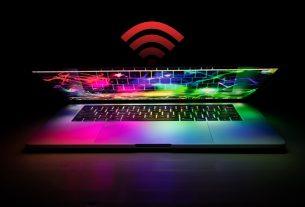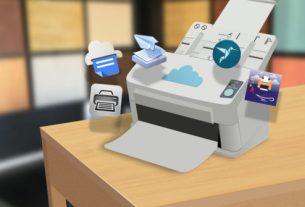The Llano MicroDock is a minuscule adaptor to replace the oversized plastic brick Dock, and let you record and stream your gameplay.
- Brand: Llano
- Connection: USB-C
- Ports: HDMI Out, USB-A capture interface, Audio Input/Output, USB-C Power
- Plug'n'play, no drivers needed
- Captures at full 1080p60
- Direct audio input results in no lag when streaming
- Only works with Switch, it's not a replacement for generic HDMI capture card
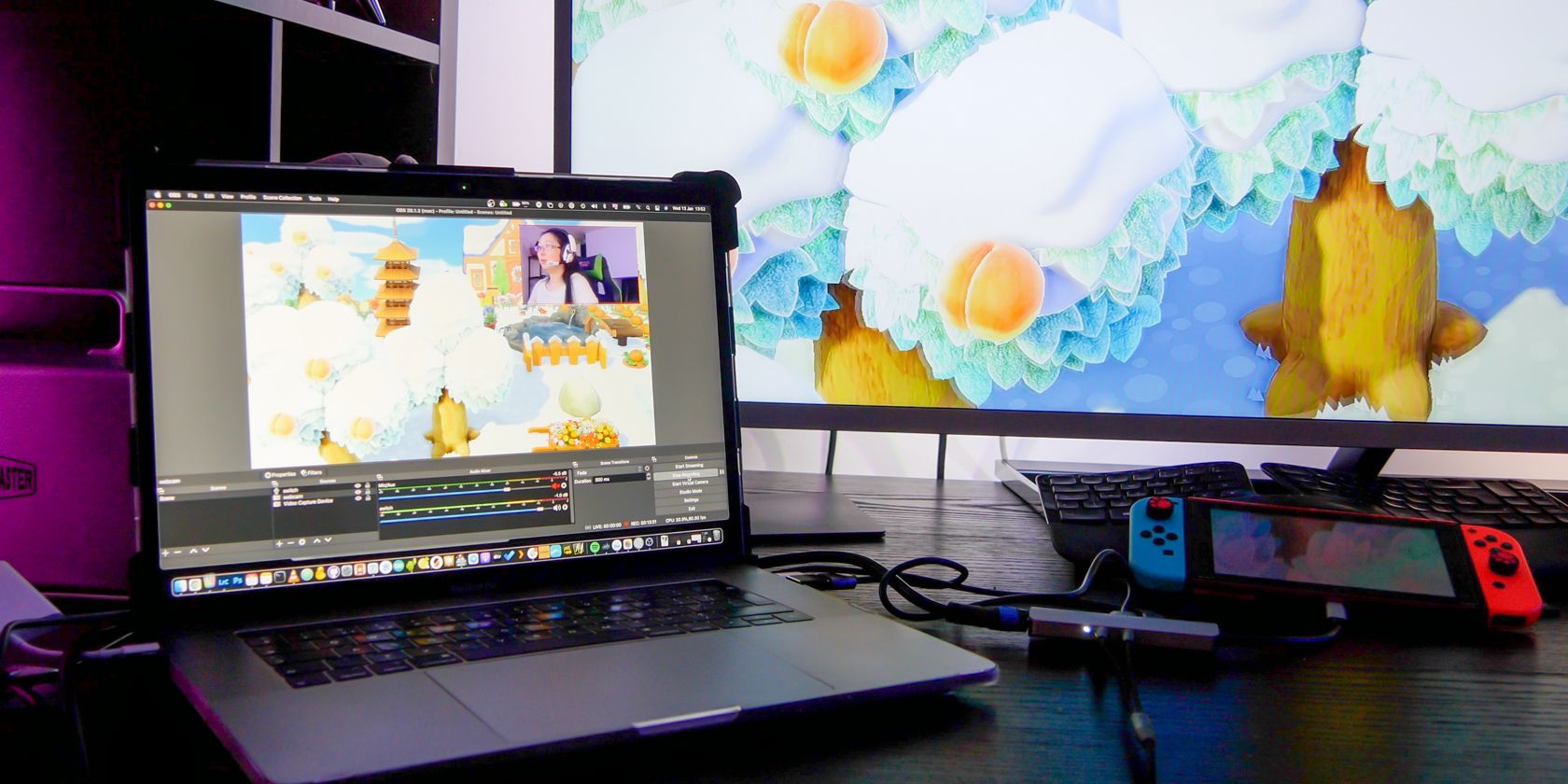
Llano MicroDock for Nintendo Switch other
The Llano MicroDock for Nintendo Switch is a pocket-sized replacement for your original Switch Dock—but with one fantastic additional feature: the ability to capture your gameplay, for recording and streaming. No drivers are needed, no additional cabling mess, and no costly separate capture cards. It’s simple to use and does exactly what it says on the box with no fuss.
You can pre-order the Lanno MicrDock now for $ 99, but be quick, as the RRP rises to $ 150 when the campaign ends.
Is the Llano MicroDock the Switch streaming solution you’ve been looking for? Quite possibly, but read on to find out more about this minuscule Switch dock replacement.
Llano MicroDock Design and Ports
Aesthetically, the MicroDock is nothing special. In fact, it looks like every other USB-C hub out there. Not entirely surprising given that’s Llano’s specialty. But open closer inspection, the selection of ports tells a different story–and the real magic is hidden away inside anyway.

On one end is a short USB-C cable. This plugs directly into your Nintendo Switch USB-C port on the bottom edge. At this point, it’s worth noting that this is only compatible with the Switch, not the Switch Lite. The Switch Lite cannot be output to a TV, regardless of what adaptor you use—it simply doesn’t have the hardware capable of doing that.
On the opposite end is a full-size HDMI port. No cable is supplied, but any cable should be sufficient since the Switch is only capable of outputting a maximum 1080pHD.
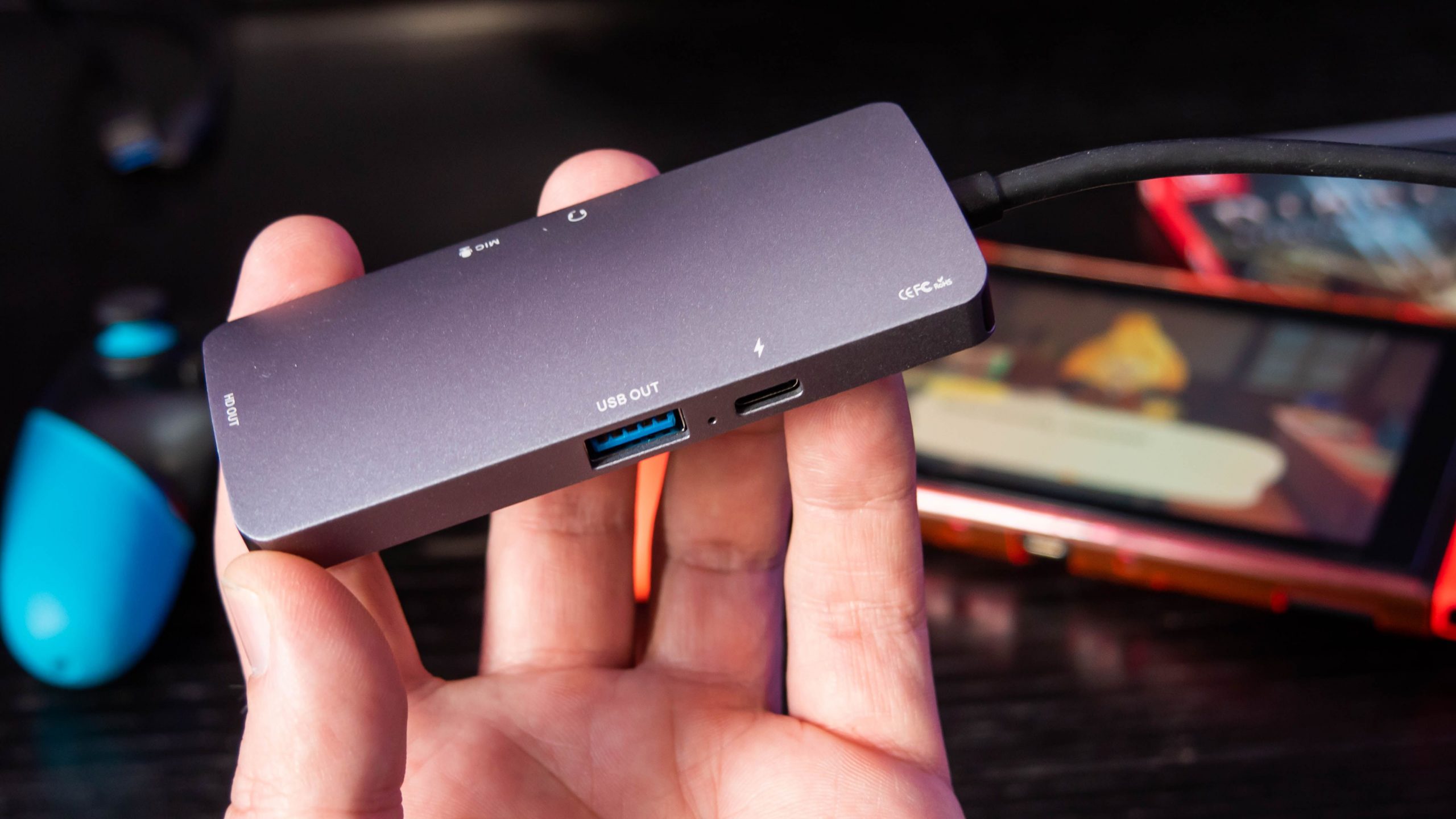
Before you can output anything though, you’ll also need to plug your original Switch charger into the USB-C port on the side of the MicroDock. It’s the only USB-C port on there, but also labeled on the underside with a lightning bolt. The MicroDock passes this through to the Switch, and presents itself as an original charger, so there should be no issues with under/overvoltage. Using third party adaptors with a Switch has always been a bit of a concern, with stories of devices being bricked thanks to unofficial chargers. Use the official Switch charger alongside the MicroDock and you’ll be safe.
Lanno MicroDock TV Output
With the HDMI and USB-C charger plugged in, the MicroDock will act just as the original Dock does, allowing you to play on the big screen at the full HD 60FPS resolution.
In my experience, there was no discernible lag when using the Llano MicroDock for big screen play. I found plugging in the HDMI and charger to the MicroDock first, then plugging the USB-C cable into the Switch, worked most reliably, requiring only a few seconds for the TV input to activate.
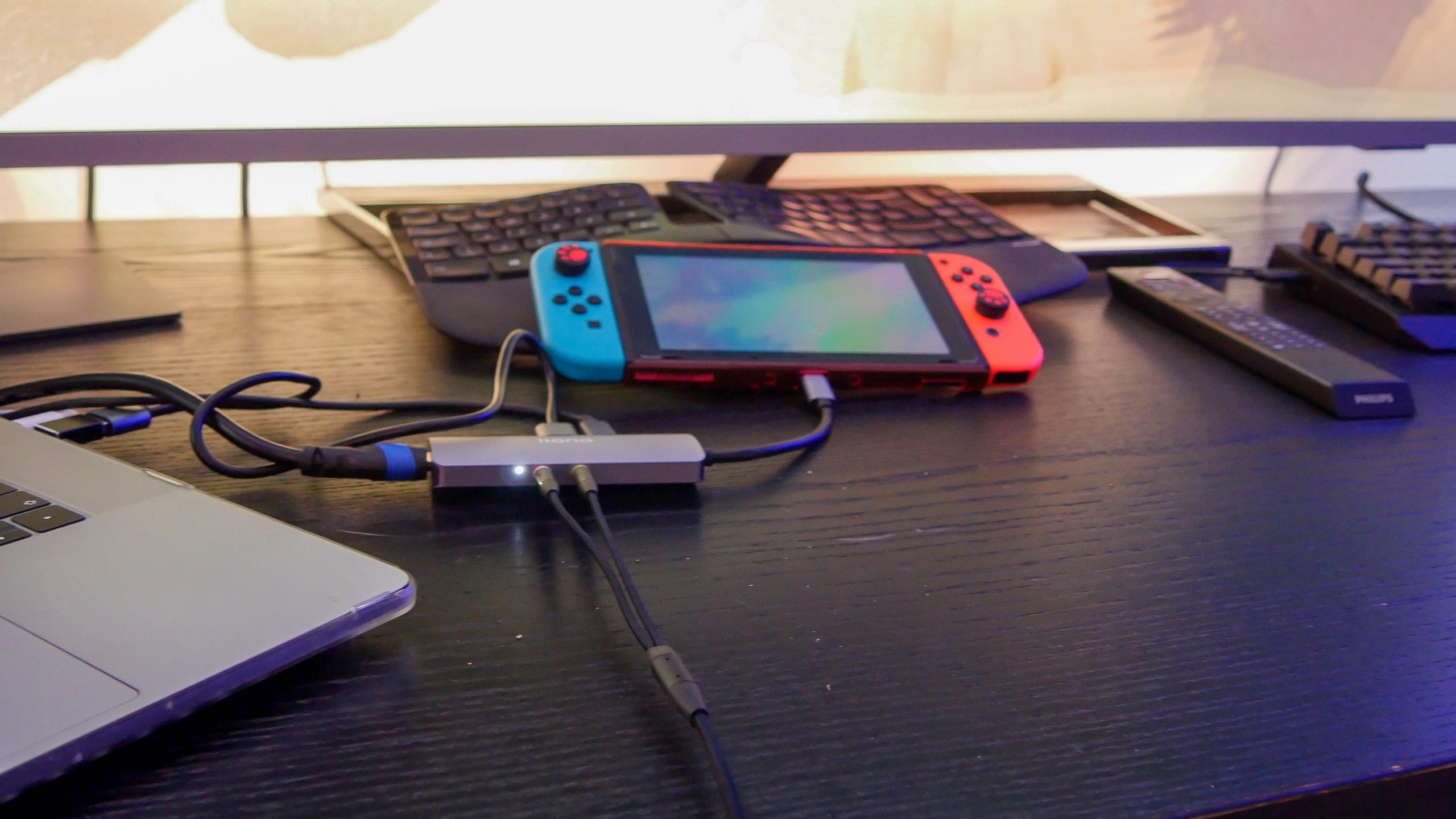
It’s worth noting that any limitations the Switch introduces with docked play are also present when using the MicroDock. Despite the fact that you could feasibly use the Switch handheld as is with the MicroDock attached, the Switch disables any attached joy-cons. So they will need to disconnected and slotted onto an external controller shell (or each used handheld).
Switch Game Streaming
The real magic comes from the additional USB-A port you’ll find next to the USB-C charging port. A USB-A to USB-A cable was supplied in our package, along with a USB-C adaptor, though it’s not clear if this will be in the final retail release. Regardless, it’s a generic cable that’s easy to source or replace.
Just plug this cable into your PC or Mac, and open up your favorite game capture and streaming software. Since the MicroDock presents as a standard USB video capture device, and doesn’t require any additional drivers, it should work with any software. We tested with OBS, and there was nothing to configure–everything just worked after adding a new video and audio interface. Video is captured at the full HD resolution, at 60 frames-per-second. There’s no loss in quality from what the Switch is capable of.
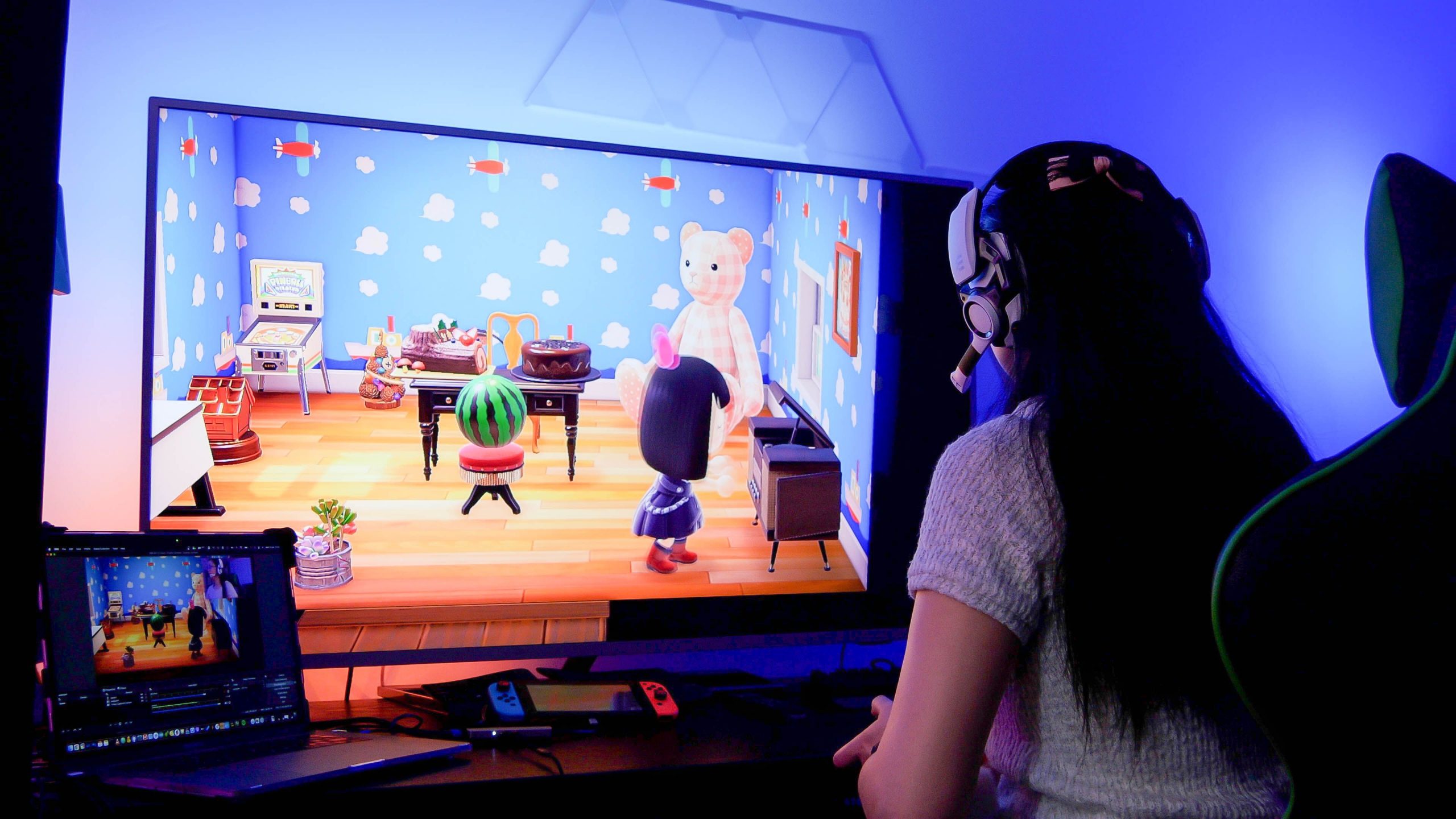
Of course, there is a lag of a second or so for the recorded footage. This is not unusual with any video capture device. The on-screen action on the TV remained perfectly in sync. You can then record or stream your gameplay to your favorite services. You can view samples of recorded gameplay in our review video.
Direct Audio Capture and Output
One issue streamers face with any capture solution is the inherent lag between the game actions and your voice input on the PC software side. A second or two might not sound like much but can really sound awkward at critical moments.
The MicroDock avoids the audio input lag problem by shifting the microphone input onto the hardware side of things. On the side opposite to the USB ports, you’ll find two 3.5mm stereo ports: one for your microphone, and one for headphones, so any analog gaming headset can be plugged directly into it. You don’t need to configure additional audio inputs within your streaming system—it’s automatically mixed into the game audio.
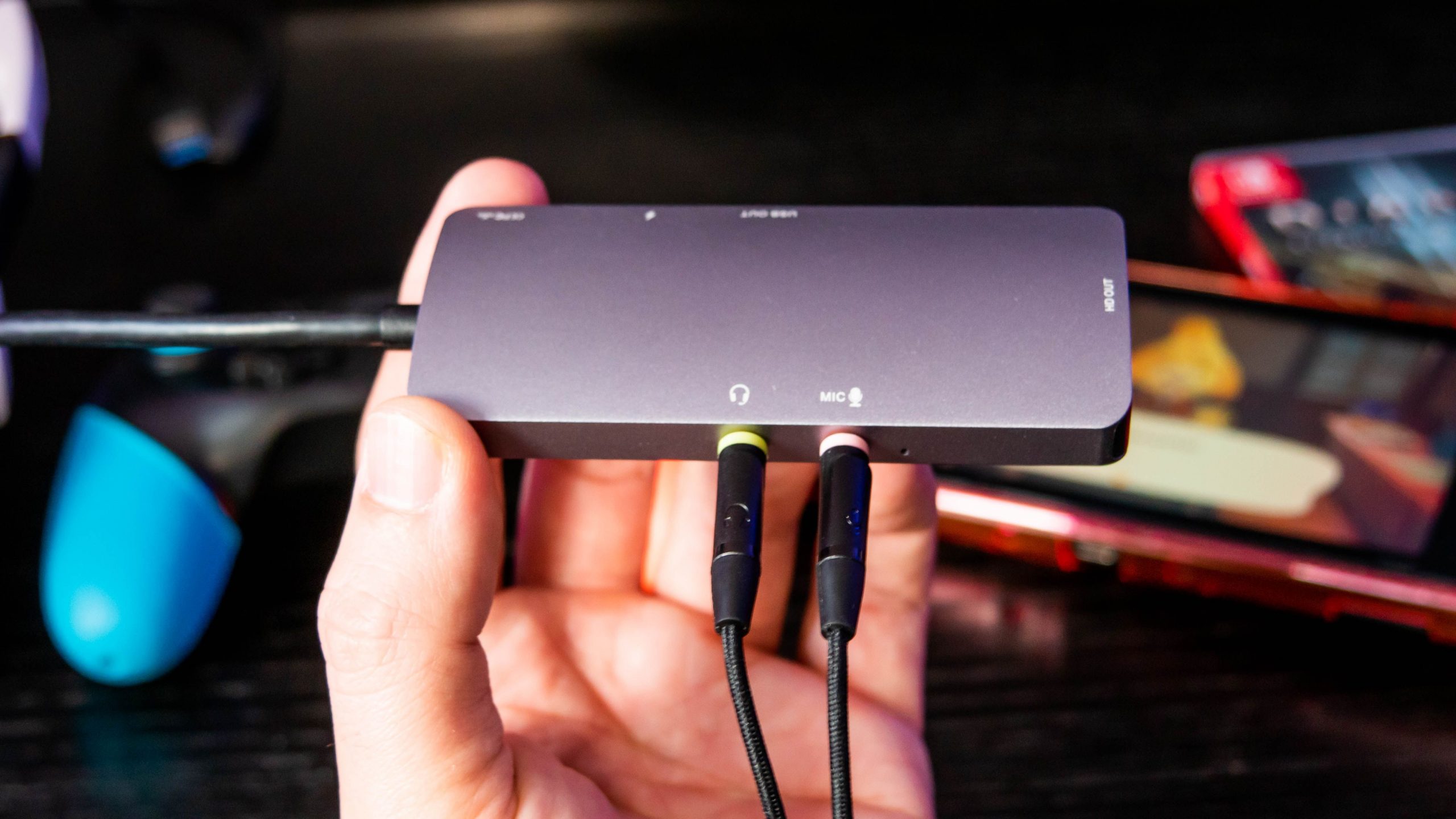
This approach might also be seen as a negative, though: you can’t configure the audio level even if you wanted to. There are no additional drivers and no settings to adjust, so unless you have a very fancy gaming headset with inline mic level controls, you can’t change it. But if you do find it’s too loud, or too quiet in comparison to the game audio, you should plug the microphone into your PC instead to adjust there.
Thankfully, the microphone seemed acceptable in our testing–check out the recorded sample in the full review video.
In terms of audio quality, this will of course depend on the microphone you have plugged in. We used the EPOS | Sennheiser GSP601 gaming headset.
Be The Next Famous Switch Streamer with The Llano MicroDock
The Llano MicroDock is not a revolutionary device that contains never before seen electronics. It’s a simple combination of existing technology in a neat package that does what it claims to do, and does it well.
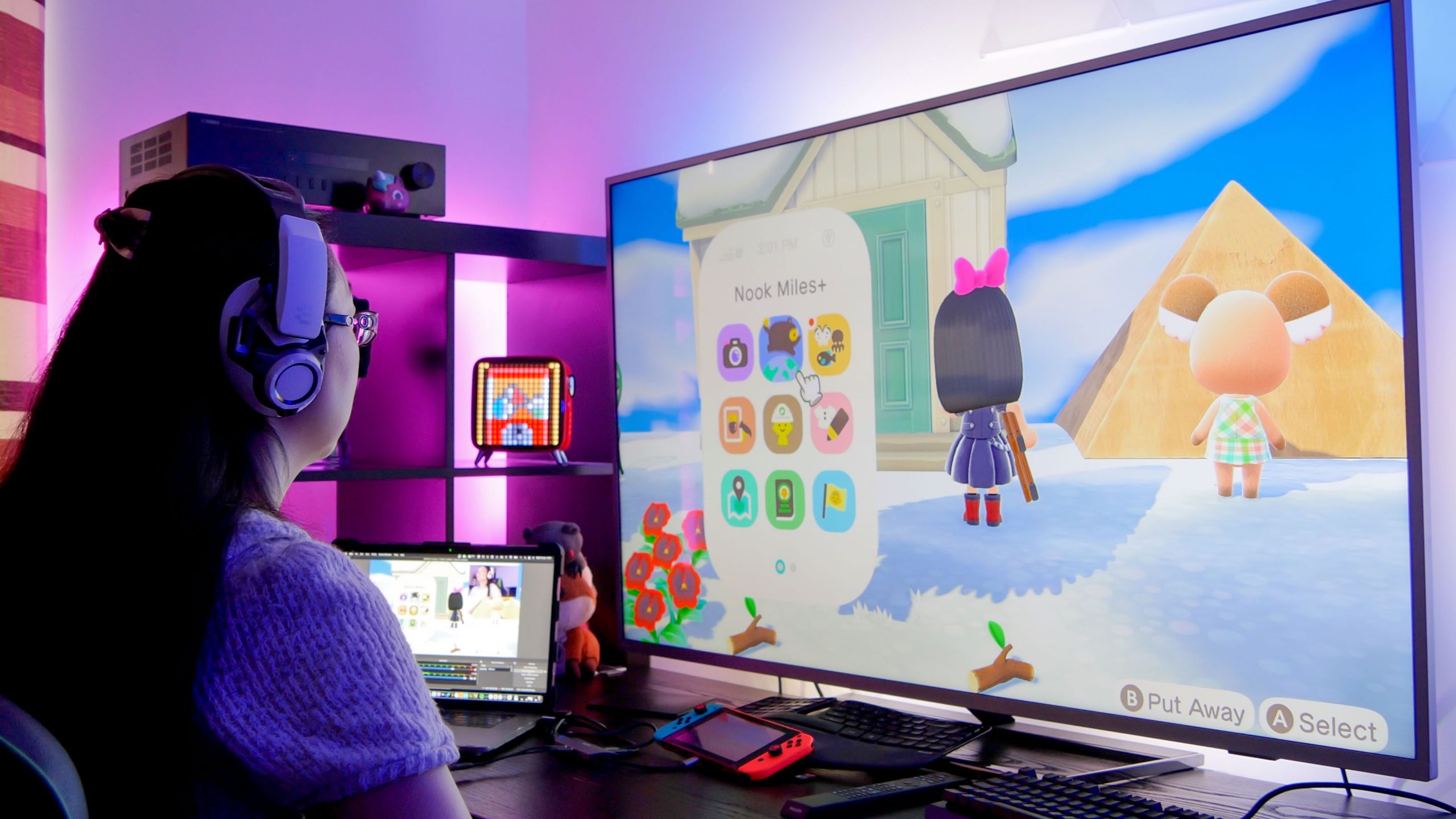
For anyone looking to replace their original dock with a more portable solution, as well as record or stream gameplay, in one compact and convenient package: I can highly recommend the MicroDock. In my experience the connection was reliable, the recorded footage was at full quality, and it all just worked as intended without the need for complex drivers and configuration. The ability to plug your gaming headset directly into the adaptor is an added bonus that eliminates any awkward lag in your recordings.

The only downside to the Llano MicroDock is that it’s very niche. It literally only works with the Switch (and curiously a few Samsung smartphones that can do DeX). Not the Switch Lite, not the Xbox, nor any other HDMI device. If you’re an avid streamer, you might want a more future-proofed device or something that will work with the rest of your consoles. The MicroDock isn’t for you. You’ll need to invest in a more generic HDMI capture device, which alone will set you back upwards of $ 150, and can then be used in conjunction with your original Switch dock.
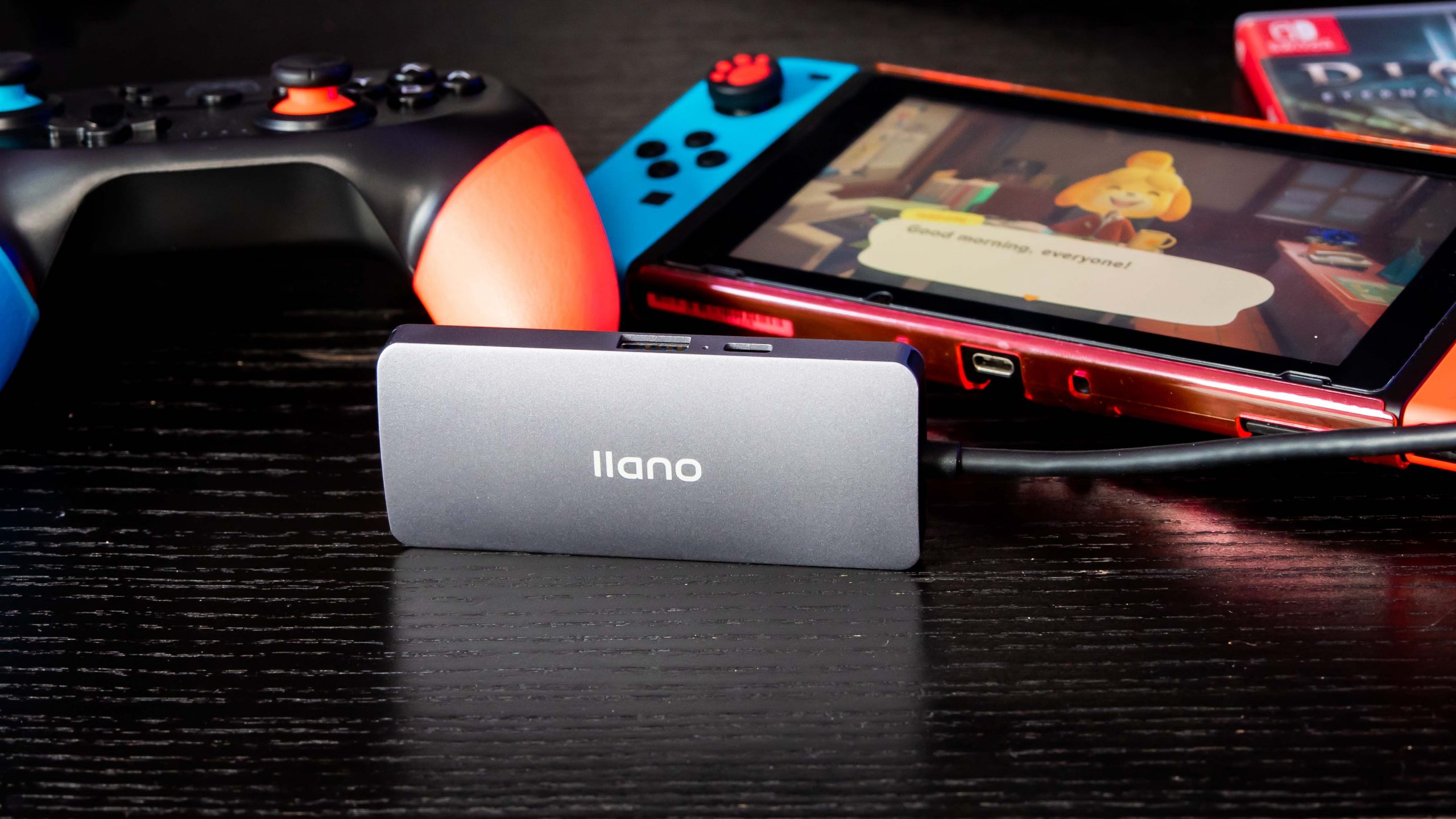
The MicroDock isn’t worth it if you don’t care about streaming or recording their gameplay at all, and just want a smaller dock adaptor to replace the plastic brick that Nintendo provides. You’ll find cheaper devices in much the same form-factor as the MicroDock, for around half the cost, that don’t have the ability to capture your gameplay.
Disclaimer: It’s a Kickstarter
Kickstarters can fail, or suffer delays. There is no legal obligation on a company to actually deliver a product. I know this because I’ve personally lost thousands of dollars on undelivered products, as have our loyal readers who have lost money on projects we’ve featured in the past. For that reason, we’ve tightened the rules around which crowdfunding products we’ll accept for review.
In this case, Llano is not a new company and has been making similar USB hub devices for many years. The product is as functional as it can be and appears to be ready for mass production. Delivery is slated for March 2021, and this seems reasonable. In this case, we don’t think there’s an undue risk in backing the MicroDock and are confident of the company’s credentials. For transparency, our review sample was arranged through EarlyTechFinder, a PR agency that we’ve worked with before.
However, as with any crowdfunding campaign, never spend money you couldn’t afford to lose if something were to go wrong; and never assume a product will be delivered on time.

